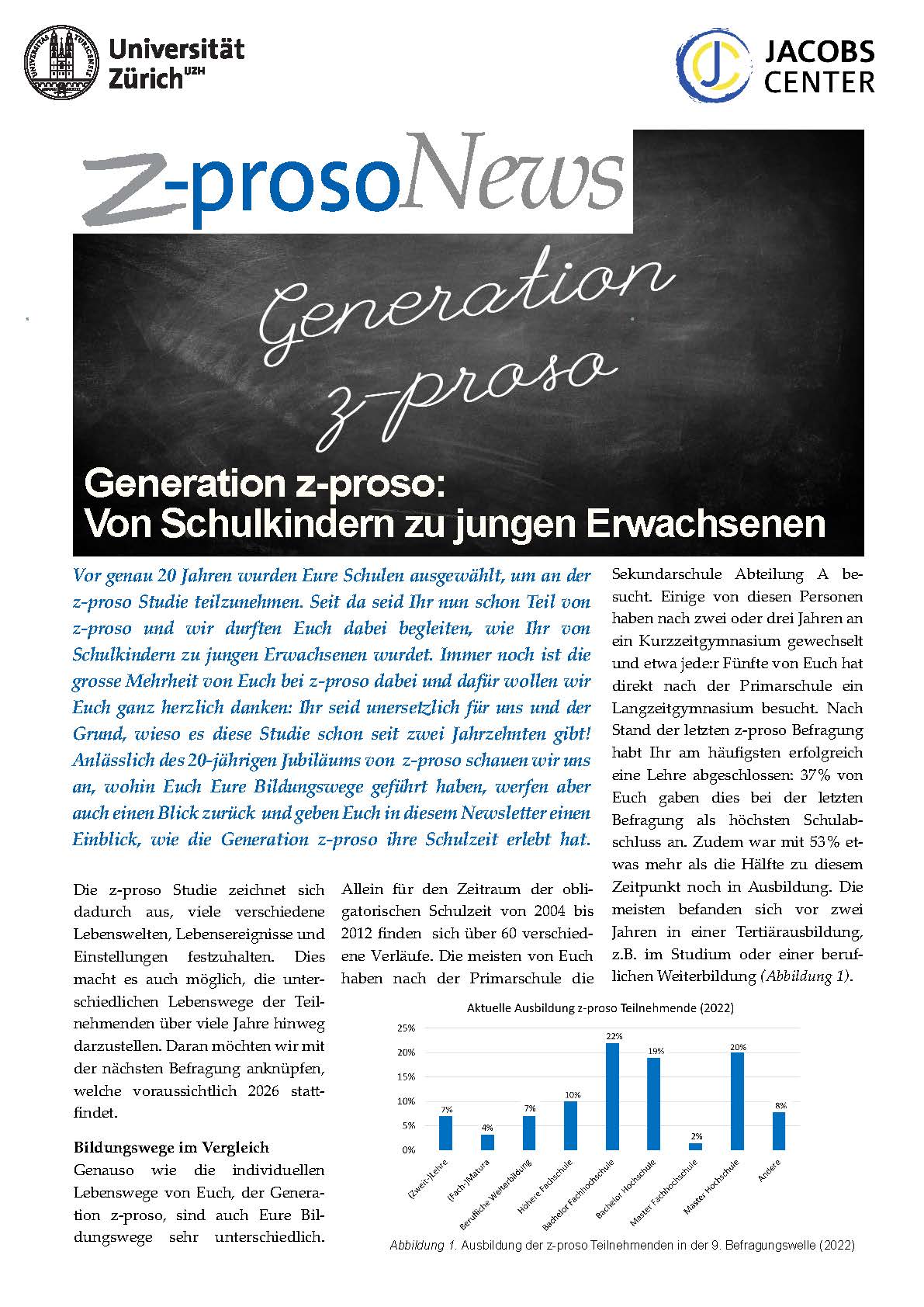The z-proso Research Infrastructure: The Zurich Project on the Social Development from Childhood to Adulthood
Exploring life events, violence, problem behaviors, and educational careers in the life course of young people

z-proso studies the social development of children and adolescents with a particular focus on aggressive and delinquent behaviour, but also of prosocial characteristics and educational trajectories. In doing so, it investigates how individual, family, school and situational factors interact in the development of violence and other problem behaviour and influence educational careers. Over 1,400 young people have been regularly surveyed since they entered primary school in 2004. The latest, ninth wave of data collection, was conducted in 2022 at age 24.
The study is complemented by a field experiment aimed at evaluating the effectiveness of two early prevention programmes, i.e., the parent training programme (Triple P) and the school-based social skills training named “PATHS” in English, which has been called "Denk-Wege" in German since 2018. z-proso fills an important gap in the field of prevention research as it examines the long-term effects of these programmes.
The marked cultural diversity of the sample, the combination with a field experiment as well as the long running time - since 2004 - in association with an excellent retention rate distinguish this project, which is funded by the SNF as a research infrastructure.
Further reading
- General introduction to z-proso (PDF, 1 MB)
- z-proso News 2024: "Generation z-proso: Von Schulkindern zu jungen Erwachsenen" [in German] (PDF, 3 MB)
- z-proso News 2023: "Generation z-proso: Wie sie lebt und liebt" [in German] (PDF, 3 MB)
- z-proso News 2020: "Junge Menschen in der Coronakrise" [in German] (PDF, 611 KB)
- Brochure on the occasion of 15 years of z-proso (PDF, 4 MB)
- "Research memo: Can violent extremist attitudes be predicted?", April 2017 [in German] (PDF, 474 KB)
- Factsheet with key findings 2017 [in German] (PDF, 382 KB)
- Factsheet with key findings 2015 (PDF, 1 MB)


